This article is inspired from the Hospitality Resilience Series’ eighth session on “How to transitioning from a Static to a Dynamic Leadership Style”, held on June 10th 2021, hosted by Jonathan Humphries, Chairman HoCoSo, Chris Mumford, Founder CERVUS Leadership Consulting, Jon Hazan, Executive Coach ATLAS Coaching, with special guest Patrick Ghielmetti, Global Experiential Leadership Trainer, Behavior-based Executive coach and President of Ghielmetti & Associates.
Defense mechanisms are psychological triggers that unconsciously kick-in when people are confronted with a harsh reality or fact that is undeniable or more accurately, inescapable. Another equally-interesting built-in system is the fight-or-flight survival mechanism. While the first is psychological and the second physiological, both operate in concert to help us overcome internal and external adversity in light of uncertainty.
While both aid us in navigating our world, neither help us to resolve the unexpected, rather they drive us to distance ourselves from the existing threat. Yet despite such coping mechanisims, denial is generally the outcome, a response that leaves us in complete disarray.
That however, does not have to be the case argues Patrick Ghielmetti, Global Experiential Leadership Trainer, Behaviour-based Executive Coach and President of Ghielmetti and Associates. As special guest featured in the Hospitality Resilience Series, the Founders Jonathan Humphries, Jon Hazan and Chris Mumford hosted Patrick to unearth his tried and tested method of how to better navigate uncharted waters that dominate human thought.
Q: You draw a clear distinction between static and dynamic leadership, would you care to elaborate?
A: There is a difference between leading statically or dynamically, yet in both cases, everything starts with an event, which could be something that is happening right now or that has occurred. In general, the reaction is usually either denial (resistance), or acceptance.
During the first two months of COVID, I was in complete denial. I was in ‘poor me’ attitude and a lot of energy went to that. I felt disheartened, because I had a belief in how the world has to look. Yet even if I’m in a static leadership cycle, I still lead. I take action. It’s not a non-actionable space, but I would venture to say that action is happening from a place of automatic reaction. So it is a robotic reaction, not a conscious choice. This approach gives me a feeling of control, but I would venture to say I actually am not. It’s the illusion of control, which is quite tempting and alluring. However, I’m anything but in control. I’m actually quite out of control.
Q: What happens when one switches to a dynamic approach then?
A: By shifting from resistance (static) to acceptance (dynamic), subjectivity is replaced with objectivity. It’s a neutral look where judgment and emotions are reserved. What I mean is that I don’t label the event as good or bad, rather form a judgment-free opinion. Acceptance is a judgment free state. Now I have a new way forward. I call it the ‘So what?’ method followed by the ‘Now what’ method’.
Q: How does one figure out which approach to employ, especially since many emotions will be inextricably linked?
A: The question is, how much weight or emphasis are you willing to lend these emotions. In acceptance, that weight, or emphasis gets diminished significantly. In an ideal scenario, it goes to zero. The recipe how to do it is first to become aware of the choices available to you then make the decision of where you want to be.
Q: How does one develop that awareness or the ability to be more present?
A: I’m still practicing and the majority of my time I spend in a static cycle because that’s what we do. We slither automatically to that side because it’s easier, more comfortable and I’m in control. The other one is harder, but presents the opportunity for growth and evolution. Keep in mind that although the latter approach may not yield the desired results, the difference is that this time around, I wouldn’t blame myself whatever the circumstances or the environment.
Q: How important then is having the necessary framework or culture that supports and strengthens a more dynamic approach?
A: Transformational work only works if there is a readiness for change. The good news in that I see a hunger for transformation. That’s one of the reasons I remained in business. But does the environment need to support it? Yes, if the organizational culture is bent on it. So I genuinely believe that a company culture better supports organizational growth and change.
Q: What do industry leaders need in order to better respond in a timely and approapriate way to any challenge?
A: Hoteliers who play it safe will probably not survive, especially when their insistence on being right is more important than exploring new options. Applying anything new at the very beginning will surely have you in an uncomfortable, not to mention risky situation that may not yield the intended results. Then again, that’s an amazing dynamic space and the only way forward.
Q: What advice would you give individuals who would like to better themselves?
A: I’m a deeply flawed human and quite proud of it. Sometimes I really don’t like this about me, but because I own my deeply flawed being, that provides me with an opening to become just a little less flawed. It is an unending learning process with unlimited potential for continued growth. After all, I believe if we stop learning, it’s time to check out.
Key Takeaways
- By shifting from resistance (static) to acceptance (dynamic), subjectivity is replaced with objectivity.
- I don’t label events as good or bad, rather form a judgment-free opinion, because acceptance is a judgment free state.
- Transformational work only works if there is a readiness for change.
- Hoteliers who play it safe will probably not survive, especially when their insistence on being right is more important than exploring new options.
Watch the session’s replay here:
> Join the Hospitality Resilience Series‘ community on LinkedIn and on Instagram.
Our thanks to Yves for his time, his thoughts, and his excellent advice.
About the author
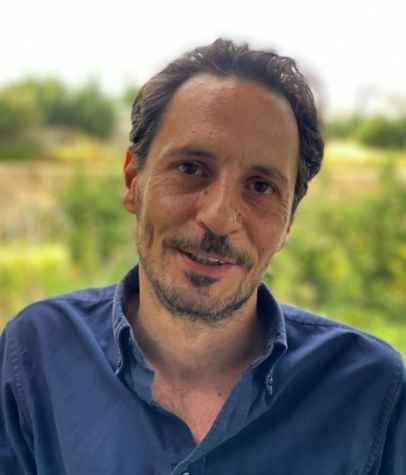 Jad Haidar
Jad Haidar
Leveraging over 20 years of writing as a seasoned journalist, Jad has interviewed globally reputed personalities in the advertising, communication and hospitality industries. He is a storyteller at heart, crafting balanced and informative articles for readers. He was the features writer for ArabAd and Hospitality News magazines in the Middle East for the past 10 years and is currently a webinar writer for HoCoSo. Before becoming a journalist, he spent 5 years teaching English. He holds a B.A. in English Literature and communicates in 4 languages.
About HoCoSo
HoCoSo are advisors with a difference.
We create tailor-made and innovative solutions for clients’ hospitality-led projects by bringing together the optimum team of sector specialists.
Jonathan Humphries, Chairman and Owner of HoCoSo, and his direct team specialize in the extended-stay, co-living, and hotel-alternatives hospitality market; luxury, lifestyle and boutique hotels; and resort developments in Europe, the Middle East and Africa (EMEA). Our strengths lie in the following core services:
- Product & Concept Creation, for portfolio & individual asset developments.
- Strategic Development Projects with a focus on new-market / new-concept business expansion planning, operator selection, market and financial feasibility studies.
- Transformative Asset Management for brand re-positioning, asset re-evaluation and concept re-structuring.
- Hospitality Education for companies and academic institutions, with a focus on bespoke course development, training and teaching.
- Workshops, Keynotes and Conference Moderating for boards, leading international conferences and incubators.
During the covid19 crisis, HoCoSo launched HoCoSo CONNECT, an initiative aimed at bringing the industry together to brainstorm and collaborate; HoCoSo CONVERSATION, a podcast channel encouraging the discussion with thought leaders from around the globe, for the hospitality industry; and, in collaboration with Atlas Coaching and Cervus Leadership Consulting, we also launched the Hospitality Resilience Series , a combination of online events, insights and discussions aimed at helping build your personal resilience and inner immunity.



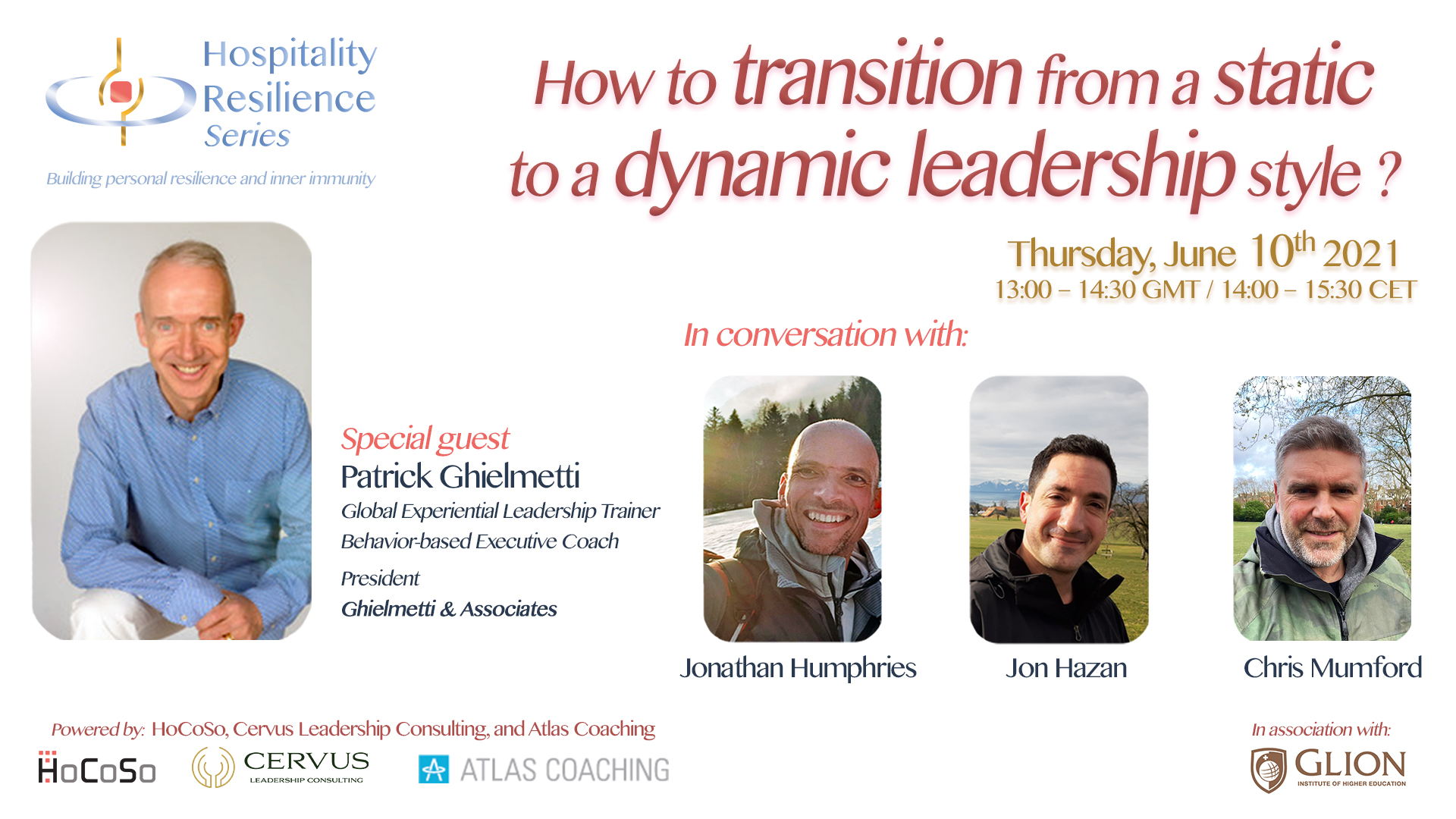
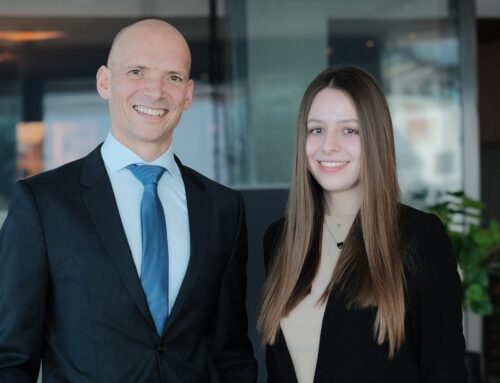


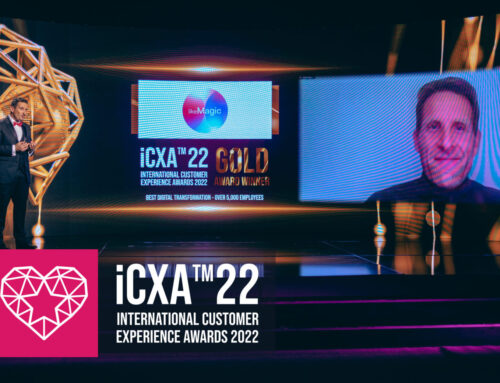
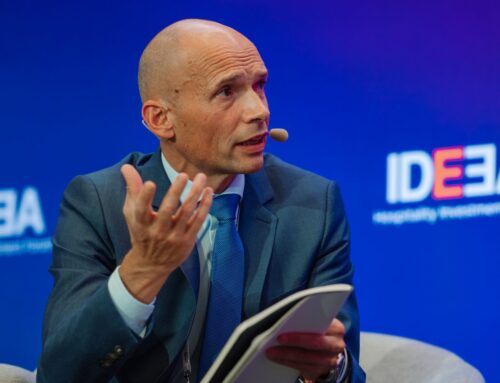
Leave A Comment